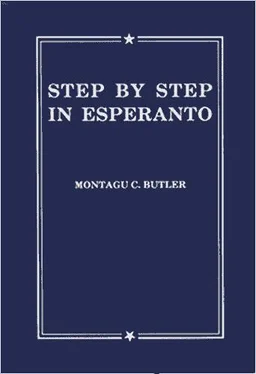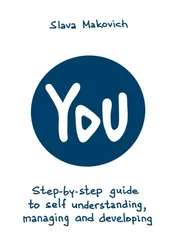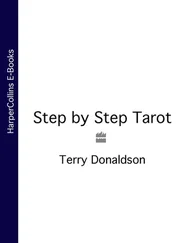Varianto. Skotlando estas malpli granda, ol Aŭstralio. Do …
(d) Kiu(el la du) iras pli rapide: biciklo aŭ aeroplano? Vaporŝipo aŭ velŝipo? Kiu lumas pli hele (donas pli helan lumon): la sunoaŭ la luno? la luno aŭ la steloj? kandelo aŭ elektralampo?
(e) Kiu estas pli granda: elefanto aŭmuso? li aŭ ŝi? facila: la Latina lingvo aŭ Esperanto? forta: vi aŭ mi? inteligenta: knabo aŭ knabino? komforta: benko aŭ brakseĝo? longa: krajono aŭ plumo? profunda: la maro aŭ rivero? proksima: Aŭstralio aŭ Islando? valora: amo aŭ mono?
Varianto: Kiu estas pli malgranda? (malpli granda?)
580. OLmay follow words like alia, malsama, prefere,which contain the idea of comparison. Alia ol mi, other than I. Ne alie, ol piede, not otherwise-than (only) on foot. Prefere ol fari tion, rather than do that. Mi preferas (plivolas) panon ol( to ) kukon. Mi opinias malsame, ol( from ) vi.
581. (a) Place pli, malpli, plej, malplej, before the following words , and translate: utila, malgranda, rapide, klare.
(b) En la klaso ĉiu knabino estis bona. Hildo estis pli bona ol Filiso, kiu estis la malplej bona el ĉiuj. Tamen, kvankam ŝi estis tiel bona, kiel ŝi povis esti, ŝi estis malpli bona, ol (aŭ, ŝi ne estis tiel bona, kiel) Matildo, kiu estis kiel eble plej bona: efektive, la plej bona el ĉiuj.
Kontraŭe, ĉiu knabo estis malbona. Danielo estis pli malbona ol Roberto, kiu estis la malplej malbona el ĉiuj; sed li estis malpli malbona, ol ( aŭ , ne tiel malbona, kiel) Edmundo, kiu estis kiel eble plej malbona: efektive, la plej malbona el ĉiuj.
(c) Repeat, substituting laboris (mal)bone for estis (mal)bona.
582. PLU= further, more (duration, continuance, as to time or space) . Mi NE PLU povas kanti, I can sing no more (no longer). Neniam plu, nevermore. Kaj tiel plu (k.t.p.), and so on. Unu paŝo plu, one step further.
Compare PLI( comparison of quantity ). Mi ne trinkis pli (multe), ol vi.But Mi ne plu trinkis(= mi ĉesis trinki ).
Plie, plue, moreover ( plie= in addition, to a greater degree; plue= furthermore, in continuation ). The difference is slight, and often either word is equally applicable.
583. Faru tion, kaj ne pludiskutu pri ĝi. Ne pluparolu. Formorti, dormi, kaj nenio plu.La pluairo de la afero neinteresis min. Sen pluaparolo.
584. “Tiuj du amikoj similas parafinon,ĉu ne?” “Kial?” “Nu, ili malpacis, kaj ne plu iras kune.” “Do, para fino!”
585. You are no longer young. I don’t wish to say (any) more. Don’t say more than you wish. She is no longer a girl, but one of the most beautiful of women. Her eyes are bluer than the sky, and her hair(s) more golden than the sun. She is even more beautiful than her mother was, when she (tiu) (426) was a girl. And she sings more beautifully than an angel.
586. Mi amas lin pli, ol (mi amas) vin, I love him more than (I love) you. Mi amas lin pli, ol vi (amas lin), I love him more than you (do) . Mi amas vin tiel varme (a) kiel mia frato (amas vin), as my brother does; (b) kiel (mi amas) mian fraton, as (I love) my brother . Vi traktas min( You treat me ) (a) kiel infano, as a child (would treat me); (b) kiel infanon( like a child = as you would treat a child ).
587. Mi amas vin pli, ol (a) mia frato; (b) mia nfrato n.Efektive, mi vin amas kiel (a) fratino; (b) fratino n.Mi ŝin helpis kiel (a) patrino, (b) patrino n.Li min petis kiel (a) instruisto, (b) instruisto n.Li parolis al mi kiel (a) edzo; (b) aledzo. Ili ludis kun ni kiel (a) katoj, (b) kunkatoj. La scion ŝatu pli, ol plej puran oron (Sent. 8:10).
588. I love you (a) as a brother (would); (b) as I (should love) a brother. She treats us better than (a) children (would); (b) (she would treat) children. He guided me (like) (as) a blind man (both meanings). She follows him (like) (as) a dog (both meanings).
589. Translate, using “n” when necessary. She treated the patients like babies. I can read you like a book. He wore it as a hat. He ate like a pig. She drank like a fish. She drank wine like water. You talk like a professor. You must behave like a good boy. We sold them like hot cakes. I admire her more than (a) the others (do); (b) (I admire) the others.
590. ĈE(prep.) = at,etc. It shows COINCIDENCE.
(a) OF PLACE (Cp. apud= merely close to ). Stari ĉe la pordo( at the door ). Sidi ĉe la fajro( by the fire ). Maldika ĉe la talio( at the waist ). Ĉe la apoteko, at the chemist’s. Teni ion ĉemane (ĉe la mano), at one’s hand. Kaptu lin ĉe la gorĝo( by the throat ). Aĉetu tion ĉe li( of him ). Weston ĉe la maro( on-sea ). Koro ĉe koro, heart to heart. Ĉeesti kunvenon, to attend (be present at) a meeting.
Ĉe ni may mean at our house, with us (e.g., loĝi ĉe ni), but it does not necessarily mean this. Ĉe ni, in our case (country, house, circle, etc.) oni tion ne faras. Ĉe la Grekoj, amongst the Greeks.
(b) OF SOME OTHER CIRCUMSTANCE. Ĉe lia veno, on (at) his arrival. Ĉe tio( on that ), li forkuris. Mi lin kaptis ĉe la ago ( in the act ). Ĉe lumo de lampo, by lamplight. Ĉe( in the case of, with ) tro ĝentila ekstero mankas ofte sincero.
591. Ĉe botisto la ŝuo estas ĉiam kun truo. Komencu ĉe la komenco. Restu, tajloro, ĉe via laboro. Ĉio estas justaĉe amo kaj milito. Ĉe la puraj ĉio estas pura, sed ĉe la malpuraj nenio estas pura. Ĉe kiu estas malpaco? … Ĉe tiuj, kiuj sidas malfrue ĉe vino. Ĉe vulpoj naskiĝas nur vulpoj. Neniu rivero estas granda ĉe la fonto.
592. Sidu ĉe la tablo (fenestro, muro). Atendu min ĉe la teatro. Mi loĝas ĉe mia onklo. Li staris ĉe mia dekstra mano. Ŝi libertempas ĉe la maro. Ĉe lia vizito ĉio estis en ordo. Aĉetu la libron ĉe la B.E.A. Tian esprimon( expression ) oni ne trovas ĉe aŭtoro bona.
593. If in doubt whether to use ĉeor en,choose en.Li naskiĝis enSkotlando, sed loĝas nun enLondono. Li estas profesoro ĉela Universitato.Ĝi estas ĉemia mano, sed ne enmia mano.
Читать дальше












